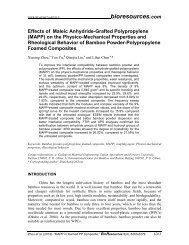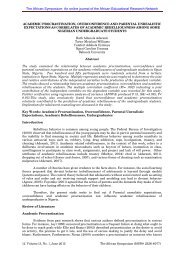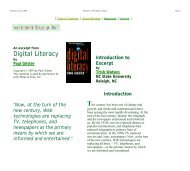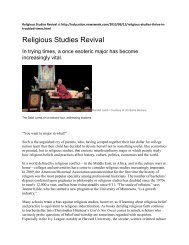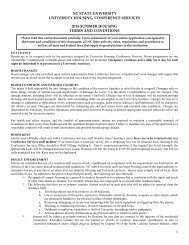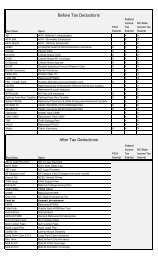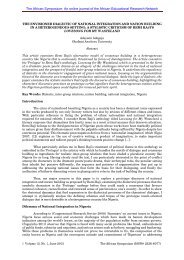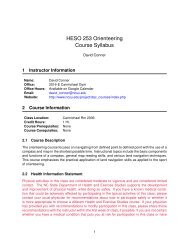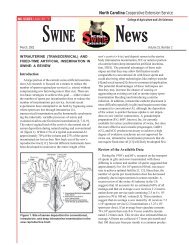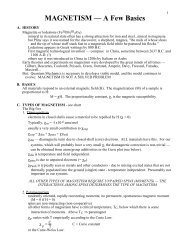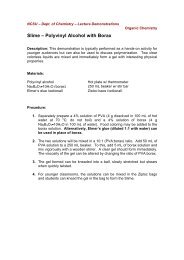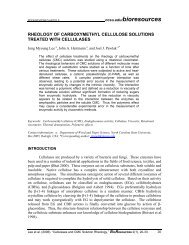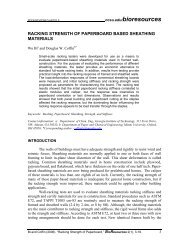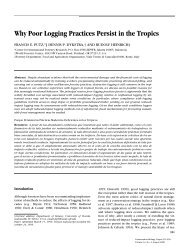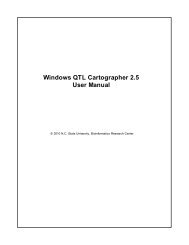Dictators, Songwriters, and the Negotiation of Censorship
Dictators, Songwriters, and the Negotiation of Censorship
Dictators, Songwriters, and the Negotiation of Censorship
You also want an ePaper? Increase the reach of your titles
YUMPU automatically turns print PDFs into web optimized ePapers that Google loves.
Starmakers: <strong>Dictators</strong>, <strong>Songwriters</strong>...<br />
Given such intimidation, it is not surprising that many artists began to<br />
censor <strong>the</strong>mselves; <strong>the</strong> “guidelines” were so extensive, yet so vague that<br />
anything could be construed as subversive.<br />
Clearly, responses to <strong>the</strong> linguistic aggression <strong>of</strong> <strong>the</strong> regime had to<br />
come about; <strong>the</strong> development <strong>of</strong> alternative expression was inevitable.<br />
Vocabulary was literally stolen from artists, as apparently every day new<br />
words were added to <strong>the</strong> lists <strong>of</strong> proscribed words. “Después lo hice con<br />
otra letra, [porque en la original] había palabras que el COMFER no<br />
quería,” explains León Gieco about his song “El Fantasma de Canterville.”<br />
“Por ejemplo ‘acribillado,’ ‘ libertad,’ ‘legalidad.’ Reformamos la letra….<br />
Después me censuraron ‘La Francisca,’—que es la historia de una<br />
prostituta—diciendo que aquí no hay prostitución. No se puede hablar de<br />
eso….” Gieco concludes, exasperated, that “[l]a verdad es que no sé de qué<br />
hay que hablar, realmente” (Grinberg 128). As a result, artists were left<br />
literally speechless before this <strong>of</strong>fensive—<strong>the</strong>y censored <strong>the</strong>mselves, some<br />
stopped writing altoge<strong>the</strong>r. “Lo que pasa,” explained Gieco to <strong>the</strong> magazine<br />
Expreso Imaginario, es que tengo problemas en componer material,<br />
porque te confieso que después de la censura del LP no compuse más un<br />
tema. Voy y reviso letras y me digo esto no va a pasar, entonces es como<br />
que tuve que castrarme y perdí un poco las ganas de componer”<br />
(“Enciclopedia del rock argentino”).<br />
The initial response <strong>of</strong> many artists was silence. Miguel Angel Dente<br />
has called <strong>the</strong> period <strong>of</strong> 1977-78 “[u]n silencio total… un momento en el<br />
cual nadie… se atrevía a decir lo que en verdad había que decir” (86). Fear<br />
left many artists literally at a loss for words. According to Gieco, many new<br />
musicians found alternatives to <strong>the</strong> frustration or fear <strong>of</strong> dealing with<br />
censorship. “Ultimamente surgen muchos instrumentistas, pero no surgen<br />
compositores, tipos que hagan canciones” (Rebelde). Of <strong>the</strong> established<br />
songwriters, some, like “el flaco” Spinetta, also embraced instrumental<br />
music as a solution, but <strong>the</strong> eponymous debut album <strong>of</strong> Charly García’s new<br />
b<strong>and</strong> “Serú Girán” short circuits <strong>the</strong> problem <strong>of</strong> censorship with a unique<br />
new proposal: “inventar un idioma” (Dente 86). The 1978 album literally<br />
57



